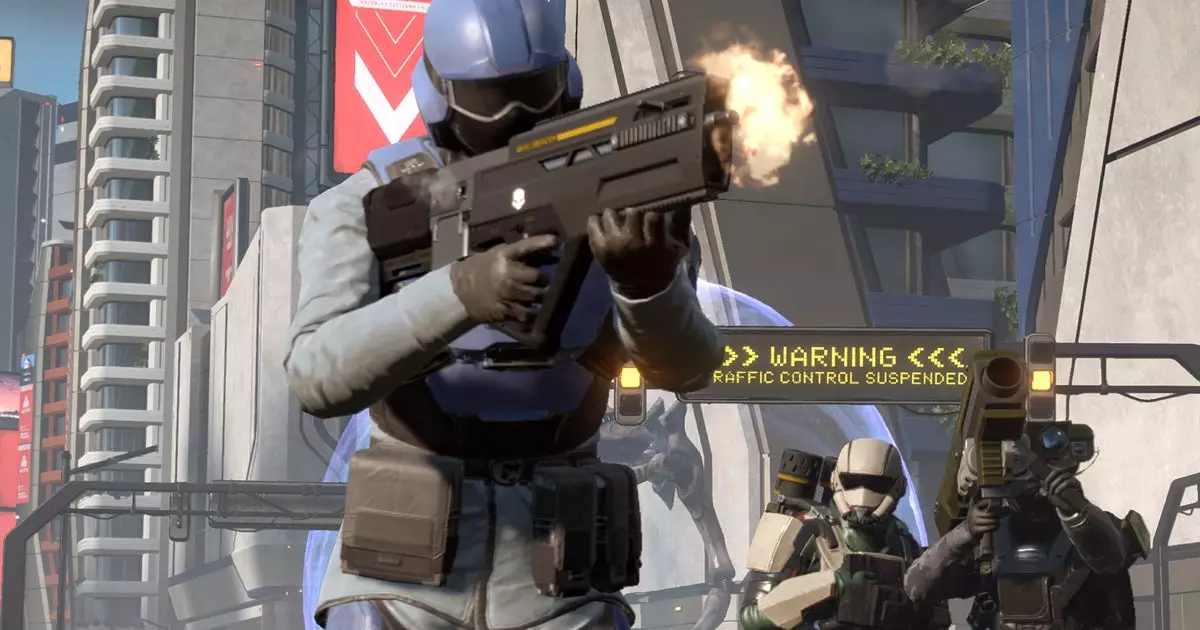The recent conclusion of Helldivers 2’s Heart of Democracy update has been nothing short of historic, igniting a fierce battle for the fate of Super Earth. It was a dramatic showdown against an invasion by the Illuminate, an antagonistic force threatening to overwhelm players’ home planet. Amid the chaos of war and strategic defense, the players rallied to save their last bastions, with one city—Equality-On-Sea—shining as a unique beacon of hope. Situated in the game’s fictional representation of China, Equality-On-Sea has not only captured the attention of the gaming community but has also made its way to local news broadcasts, underscoring the cultural significance it holds.
The Power of Collaboration
What transpired in the defense of Equality-On-Sea is a fascinating case study in collaborative gameplay that transcends geographical boundaries. Players from different nations, particularly Chinese and American gamers, banded together to fend off the relentless Illuminate forces. The heartwarming narrative of international cooperation was immortalized in a segment aired by Kanka News’s Good Morning Shanghai. This broadcast emphasized the shared struggles and triumphs of players, showcasing how a virtual battle can foster a sense of unity among those who often stand on opposite sides in the wider arena of life.
However, this remarkable display of digital camaraderie was tainted by underlying frustrations. The mechanics of the game, especially concerning the city’s defense percentage gauge, drew ire from some players who felt disenfranchised. Review bombing the game was the reaction of a disgruntled minority who believed that their efforts were being undermined. They were increasingly frustrated as the city defense struggles seemed futile, feeling that they were unfairly locked into certain outcomes by game developers Arrowhead.
The Cultural Impact of a Virtual City
The handling of Equality-On-Sea within the Helldivers 2 universe illuminates not just the game’s mechanics but also the profound relationship between gaming and cultural identity. Because Equality-On-Sea is modeled after Shanghai, Chinese players felt a deeper connection, investing emotionally and strategically in its defense. This adds layers of complexity to the gaming experience, as players weave their real-world identities and cultural contexts into their virtual battles.
Moreover, the alleged translation errors in the game further fueled player frustration. Miscommunication combined with cultural investment led some players to genuinely believe they could fully liberate the city during the invasion, only to be met with the stark reality of an unending wave of alien forces. This situation exemplifies the challenges game developers face in cultivating an experience that is both engaging and culturally sensitive.
A Community Divided Yet United
While debates over gameplay mechanics and cultural representations continue to unfold, the episode stands as a testament to the vibrant community that Helldivers 2 has fostered. It starkly reflects the dual nature of gaming: a unifying force and a potential source of division. As players around the globe engage with games that allow them to explore both collaborative and competitive aspects, they are reminded that the battlefield can also be a platform for bonding, acknowledgment, and shared purpose.
In this ongoing saga, the resilience of gamers in rallying against a common enemy speaks volumes about their dedication not only to the gameplay experience but to each other as well. The story of Equality-On-Sea, though complicated, embodies the spirit of togetherness that makes gaming a powerful medium for connection and engagement in a world that often feels disjointed.


Leave a Reply